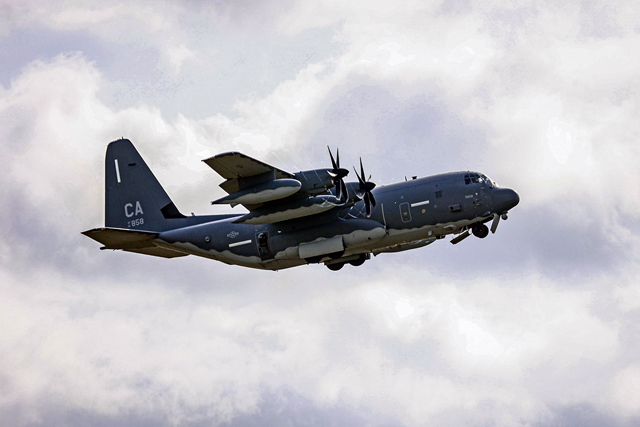
On the 80th anniversary of the fateful airborne operation of World War II known as Operation Market Garden, nearly two dozen 21st Theater Sustainment Command Soldiers assigned to the 5th Quartermaster Theater Aerial Delivery Company provided sustainment support during a Dutch-led two-week Airborne Exercise known as Falcon Leap 2024 and Operation Market Garden 80.
During the two-week exercise combo, 5th Quartermaster Soldiers loaded more than 20 container delivery systems onto NATO cargo aircraft. The delivery systems used during the exercise’s cargo airdrops were designed to simulate small-quantity sustainment items typically needed for resupplying troops in remote field conditions. The Soldiers also prepared and loaded two additional Type-V platforms.
“The cargo loads we built for Falcon Leap were created for scenarios likely to be used in real-world missions,” said Chief Warrant Officer 2 Melvin Bullard, an airdrop systems technician with the 5th Quartermaster Co.
“The Container Delivery systems are a catch-all type of system for any small quantity drops designed for resupply, while the eight-foot Type-V platforms are for large resupply drops like vehicles or bundles of ammunition. For Falcon Leap, the team prepared a heavy drop that simulates the weight and size of a load of 105 mm artillery rounds,” Bullard said.
Throughout Falcon Leap week, inclement weather delayed the start of the airborne operations and stifled the planned rapid-fire cargo and personnel missions. Bullard and his team started the week building all the delivery systems in anticipation of a break in the weather. Early in the morning on Sep. 12, several days into the exercise, planners found a favorable window in the weather. Exercise planners quickly notified Bullard’s team of riggers and planes were loaded and headed toward drop zones within hours.
Throughout the two-week exercise combo, more than 1,000 paratroopers from 11 NATO nations came together to conduct jumps, culminating with a static line jump onto the historic Drop Zone Yankee, commemorating the 80th anniversary of Market Garden here from Sep. 9-21.
According to CW2 Dustin Colwell, the senior airdrop systems technician and master jumpmaster for the 16th Sustainment Brigade, the exercise truly practices the three-dimensional interoperability of airborne operations throughout NATO while also commemorating the history of Operation Market Garden.
“In Phase IIIB of this exercise is where we are putting paratroopers and cargo on different countries’ aircraft and dropping them on a drop zone,” said Colwell. “In Phase IIIC, we are taking away all the tactical parts, and we start putting foreign parachutes on Soldiers from different countries’ backs and jumping out of planes from a different country. A likely example of airborne interoperability in this exercise would be an American Soldier who puts on a Greek parachute and jumps out of a Dutch plane,” Colwell explained.
According to Colwell, this exercise showcases a portion of the diverse power of the NATO alliance.
“For example, when push comes to shove and we need to drop NATO paratroopers into an area, we may only have American parachutes available and maybe Dutch aircraft. We are practicing that multi-function scenario here now. Sometimes it is like pieces of a puzzle that require assembling in planning,” said Colwell.
According to Colwell, exercise planners are using lessons learned and best practices to build solutions for expanded aircraft-type usage in upcoming airborne exercises throughout the European theater. The expansions will likely greatly increase NATO’s ability to provide swift-response airborne operations throughout the NATO area of operation, said Colwell.


